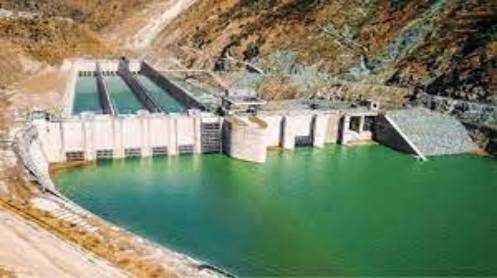In an era where climate change has become a defining issue of our time, renewable energy is no longer a choice; it is a necessity. Pakistan, with its rapidly growing population and energy needs, stands at a crossroads. The decisions made today will define the country’s energy future for generations to come. If Pakistan embraces renewable energy with a clear vision and determination, it has the potential to become a leader in the clean energy revolution not only in South Asia but globally.
Why Renewable Energy is the Future for Pakistan
Pakistan’s energy challenges are well-documented. The country has faced frequent power shortages, unreliable electricity supply, and high costs of energy imports. The reliance on fossil fuels, especially imported oil and natural gas, has placed a significant burden on Pakistan’s economy. But these challenges present an opportunity—a chance to pivot toward renewable energy solutions that are not only cleaner but more sustainable.
Renewable energy sources, such as solar, wind, hydropower, and biomass, provide an incredible opportunity for Pakistan. These sources are abundant, especially solar and wind, given the country’s geography. Harnessing these resources will not only reduce dependency on imports but will also stabilize the energy supply, lower emissions, and create jobs. This is the future Pakistan needs to invest in, for the sake of its environment and economy.
The Promise of Solar Energy in Pakistan
Among all renewable sources, solar energy updates holds the greatest potential for Pakistan. The country receives an average of about 5.5-6 hours of sunlight per day, making it one of the most solar-rich countries in the world. The southern regions, such as Sindh and Balochistan, are ideal for large-scale solar farms, but even the urban rooftops of Lahore, Karachi, and Islamabad can be used to harness solar power.
Pakistan’s government has already made some strides in this direction. The development of the Quaid-e-Azam Solar Park in Bahawalpur is a step toward unlocking the potential of solar energy. However, to truly lead the clean energy revolution, Pakistan needs to scale up its solar initiatives. This means incentivizing private investments, encouraging solar panel installations in homes and businesses, and reducing bureaucratic hurdles for solar projects.
Solar energy offers Pakistan a decentralized power solution that can reach remote areas where grid electricity is unreliable or non-existent. It can empower rural communities by providing them with a sustainable energy source, which in turn can improve livelihoods, support agriculture, and boost education by ensuring consistent access to power.
Wind Energy: A Complementary Power Source
While solar energy has immense potential, wind energy is another powerful resource Pakistan must tap into. The coastal regions, particularly in Sindh, and the northern mountainous areas are ripe for wind energy development. The Jhimpir Wind Corridor, for instance, has already shown promising results, with several operational wind farms contributing to the national grid.
Wind energy complements solar energy, especially in regions where solar output may be lower during certain seasons. By integrating both sources into the energy mix, Pakistan can ensure a more reliable and diversified energy system. Wind turbines can generate power during the night or on cloudy days when solar energy may not be as effective, thus maintaining a steady power supply.
Hydropower: Unlocking Pakistan’s Natural Waterways
Hydropower has long been a staple of Pakistan’s energy sector, contributing significantly to the national grid. With major rivers like the Indus flowing through the country, the potential for expanding hydropower remains considerable. Large dams like Tarbela and Mangla have been instrumental, but there is also untapped potential in smaller, more localized hydropower projects that can supply energy to off-grid communities.
However, hydropower development needs to be balanced with environmental considerations, such as the impact on ecosystems and communities dependent on river systems. Pakistan must adopt a sustainable approach, focusing on innovative hydropower technologies that minimize disruption while maximizing energy output.
Biomass and Bioenergy: A Rural Revolution
Biomass energy, derived from organic materials such as agricultural waste, presents a unique opportunity for Pakistan’s rural regions. With agriculture being a major part of the economy, there is an abundance of biomass available for energy production. Converting agricultural waste into bioenergy can provide farmers with an additional income stream while reducing the country’s reliance on imported fuels.
Moreover, bioenergy projects can be implemented at a local level, empowering rural communities to produce their own energy and reduce the pressure on the national grid. This decentralized approach aligns with Pakistan’s need for flexible, small-scale renewable energy solutions that can be implemented across its diverse landscapes.
Policy and Political Will: The Road Ahead
For Pakistan to truly lead the renewable energy revolution, it requires not only technological investment but also strong political will. The government must set clear renewable energy targets and follow through with policies that encourage investment and innovation. The country’s current renewable energy policy aims to increase the share of renewable sources in its energy mix to 30% by 2030. This is an ambitious target, but it can be achieved with the right regulatory framework and support for private sector involvement.
Pakistan also needs to remove barriers that hinder the development of renewable energy projects. Bureaucratic delays, inconsistent regulations, and lack of infrastructure can stall progress. By streamlining processes and offering financial incentives, such as tax breaks or subsidies, the government can create a more conducive environment for renewable energy growth.
The Role of International Cooperation
Pakistan does not need to navigate the renewable energy transition alone. Global cooperation is key to driving innovation and investment in the sector. Countries like China, Germany, and Denmark have been leaders in renewable energy technology, and Pakistan can benefit from partnerships with these nations. By leveraging international expertise and financing, Pakistan can fast-track its transition to a green economy.
International financial institutions such as the World Bank and the Asian Development Bank have already shown interest in supporting Pakistan’s renewable energy initiatives. The Green Climate Fund, for instance, offers opportunities for financing projects aimed at mitigating climate change. Tapping into these resources can significantly boost Pakistan’s capacity to develop its renewable energy infrastructure.
The Socioeconomic Benefits of Renewable Energy
Beyond environmental benefits, renewable energy has the potential to transform Pakistan’s economy and society. The transition to renewable energy will create thousands of jobs in installation, maintenance, research, and development. Local manufacturing of solar panels, wind turbines, and other renewable energy components could also stimulate domestic industries and reduce dependence on imports.
Furthermore, renewable energy can uplift marginalized communities by providing them with affordable and reliable energy. In areas that lack access to electricity, renewable sources can power education, healthcare, and economic activities, ultimately improving the quality of life.
Conclusion: A Greener Future for Pakistan
Pakistan is uniquely positioned to become a leader in the global renewable energy revolution. With abundant natural resources, a growing demand for energy, and a pressing need to address climate change, the country must seize this moment to invest in solar, wind, hydropower, and biomass energy. By adopting forward-thinking policies, encouraging private investments, and embracing international cooperation, Pakistan can secure a greener, more sustainable future.
As the world moves toward cleaner energy solutions, Pakistan has the potential to be a shining example of how developing nations can lead the way in tackling the most urgent challenge of our time: climate change.https://immediatescript.co/de/
https://tribunaldotrabalho.info/











